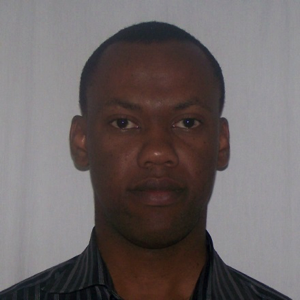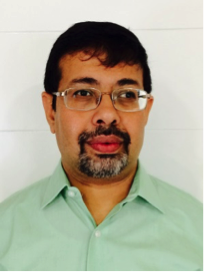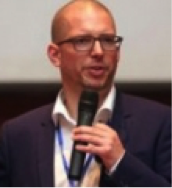18 July 2017
View Webinar Content
Presentation—Introduction to the webinar and panelists
Presentation—Yasemin Erboy Ruff: Tools and Resources for Scaling-up Mini-/Micro-Grids in Tanzania
Presentation—Andrew Mnzav: Tanzania Mini-Grid Program
Presentation—Sanjoy Sanyal: Tanzania Energy Access Maps: Interactive Market Exploration Tool
Transcript—Webinar audio transcript
 The Clean Energy Solutions Center, in partnership with United Nations Foundation’s Energy Access Practitioner Network, hosted this webinar to highlight new tools and resources available to mini-grid developers in Tanzania. This is the fifth such webinar in the UN Foundation's country-focused webinar series that seeks to delve into the state of energy access across different parts of the world, starting with countries in sub-Saharan Africa.
The Clean Energy Solutions Center, in partnership with United Nations Foundation’s Energy Access Practitioner Network, hosted this webinar to highlight new tools and resources available to mini-grid developers in Tanzania. This is the fifth such webinar in the UN Foundation's country-focused webinar series that seeks to delve into the state of energy access across different parts of the world, starting with countries in sub-Saharan Africa.
Sustainable Energy for All (SEforALL) considers Tanzania a “large gap” country—while it has significant energy potential, only 16% of the population currently has access to electricity (41% urban, 4% rural). The Tanzanian government estimates that mini-grids could be the least-cost option for electricity access for 9.1 million people in Tanzania, while off-grid solutions in general could benefit about half of the country’s rural un-electrified population.
To help advance the mini-grid sector in Tanzania, this webinar explored different tools and resources available to mini-grid developers in Tanzania, including:
- Mini-Grid Information Portal: Launched in August 2016 by the International Finance Corporation (IFC), the Portal provides licensing, financing, regulatory and other information and support to small, renewable power producers in Tanzania who want to sell electricity to consumers, especially to the millions in the country not connected to the main grid.
- Tanzania Energy Access Mapping: The World Resources Institute (WRI) will launch a new GIS tool for Tanzania Energy Access Mapping in July 2017. The mapping efforts are designed to help channel investments while showcasing data on: (i) Energy infrastructure locations (e.g., existing and planned transmission lines and mini-grids); and (ii) Demand characteristics, from the census data (e.g., on mobile phone ownership and household asset ownership to capture socioeconomic level and interest).
Webinar presentations were followed by moderated question and answer session with the panelists, guided by Yasemin Erboy Ruff, United Nations Foundation, followed by a Q&A with the audience. The hashtag #PNwebinar will be used on social media during the webinar.
Panelists
 Yasemin Erboy Ruff, Senior Officer, Energy and Climate, United Nations Foundation
Yasemin Erboy Ruff, Senior Officer, Energy and Climate, United Nations Foundation
Yasemin Erboy Ruff is a senior Officer with the UN Foundation's Energy and Climate team, primarily assisting in coordinating efforts to scale up energy access in developing countries. She manages the day-to-day operational coordination and strategic planning of the UN Foundation’s Energy Access Practitioner Network, and she serves as the Energy and Climate team's focal point for research and writing support on materials related to the energy access issue area. Prior to joining the UN Foundation, Yasemin majored in environmental science at Columbia University and gained her master's.
 Andrew Mnzava, Operations Officer, Tanzania, IFC
Andrew Mnzava, Operations Officer, Tanzania, IFC
Mr. Mnzava is an energy engineer who works as the Operations Officer with IFC based in Dar es Salaam, Tanzania. Mr. Mnzava is the program manager for Lighting Tanzania and the Tanzania Mini-Grid Program under IFC. He has more than 10 years of experience in energy access and rural electrification.
 Sanjoy Sanyal, Senior Associate Clean Energy Finance, World Resources Institute
Sanjoy Sanyal, Senior Associate Clean Energy Finance, World Resources Institute
Sanjoy Sanyal works with the Energy Program as a Senior Associate Clean Energy Finance. Prior to WRI, Sanjoy managed the New Ventures program (also a WRI program) that helped environmental enterprises raise capital from impact investors. Sanjoy also has experience in the elearning industry and was as part of the management team at SumTotal Systems, a global leader in Talent Management software, where he managed services delivery out of India. He began his career with ICICI Limited, where he evaluated credit risk and managed debt and equity syndication for project financing. Sanjoy is also the founder of Regain Paradise , a Singapore based non-profit promoting clean technology innovation in Asia and Africa. Sanjoy has a degree in engineering from the Indian Institute of Technology, Kharagpur and a Masters in Business Management from the Indian Institute of Management, Calcutta.
 Alexander Ochs, CEO, SD Strategies
Alexander Ochs, CEO, SD Strategies
Alexander Ochs is a sustainable development strategist. He is the CEO of the Berlin-based consultancy SD Strategies and Senior Director of Climate and Energy at the Worldwatch Institute in Washington, D.C. Alexander currently also acts as President of the Forum for Atlantic Climate and Energy Talks (FACET) and is Senior Fellow at Johns Hopkins University. He was a steering committee member of the Low Emission Development Global Partnership (LEDS GP) and is the Founding Chair of the LEDS GP Energy Working Group. Alexander also serves on the Clean Energy Solution Center’s expert roster and as an adviser to the German Government’s International Climate Initiative as well as a number of other international initiatives. In 2011, he received the Sustainable Future Award of the Austrian Academic Forum for Foreign Affairs.
Alexander researched and taught at Princeton University, CUNY, George Washington as well as Humboldt and Freie University in Berlin. He studied at the Universities of Cologne and Munich where he graduated with an M.A. in political science, philosophy and literature. He is fluent in German and English.
